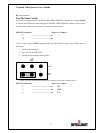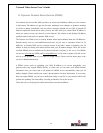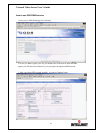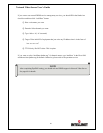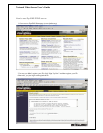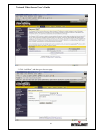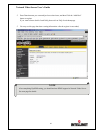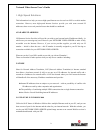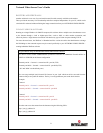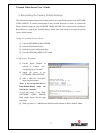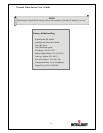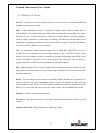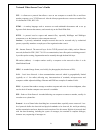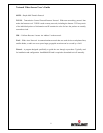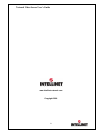
Network Video Server User’s Guide
76
FTP - A client-server protocol that allows a user on one computer to transfer files to and from
another computer over a TCP/IP network. Also the client program the user executes to transfer files.
It is defined in STD 9, RFC 959.
HTML - A markup language used to structure text and multimedia documents and to set up
hypertext links between documents, used extensively on the World Wide Web.
HTTP - A protocol used to request and transmit files, especially WebPages and WebPages
components, over the Internet or other computer network.
Intranet - A privately maintained computer network that can be accessed only by authorized
persons, especially members or employees of the organization that owns it.
IP – Internet Protocol. The network layer for the TCP/IP protocol suite widely used on Ethernet
networks, defined in STD 5, RFC 791. IP is a connectionless, best-effort packet switching protocol.
It provides packet routing, fragmentation and re-assembly through the data link layer.
IP number (address) – A unique number used by a computer on the network to allow it to be
identified and found.
JPEG – A standard image format, used widely for photographs (also known as JPG.).
LAN – Local Area Network. A data communications network which is geographically limited
(typically to a 1 km radius) allowing easy interconnection of terminals, microprocessors and
computers within adjacent buildings. Ethernet and FDDI are examples of standard LANs.
PING - A protocol that sends a message to another computer and waits for acknowledgment, often
used to check if another computer on a network is reachable.
PPP – Point–to–Point Protocol. A method allowing one computer to connect to another, usually via
a modem over a phone line.
Protocol - A set of formal rules describing how to transmit data, especially across a network. Low-
level protocols define the electrical and physical standards to be observed, bit- and byte-ordering
and the transmission and error detection and correction of the bit stream. High-level protocols deal
with the data formatting, including the syntax of messages, the terminal to computer dialogue,
character sets, sequencing of messages etc.



